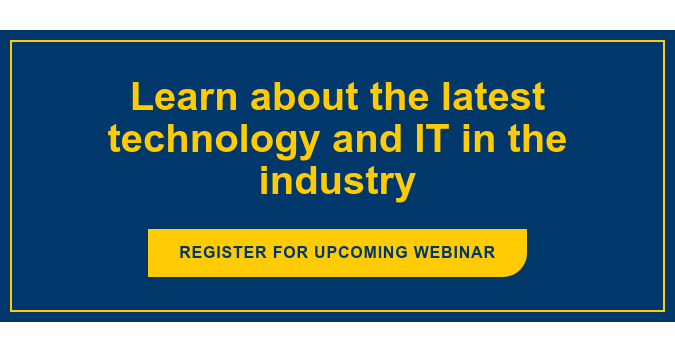 Within each organization, there are always those people you can go to for questions and get really great answers. Here at Marco, one of those people is Kevin Schmidt. As our Regional Sales Director for Wisconsin and Illinois, Kevin is a proven business leader who’s highly skilled and knowledgeable in both sales and management. We put out a call for Marco employees to send us questions that we would have Kevin answer. As it turned out, the Q&A was filled with helpful information that was also a testament to Marco’s culture of mentorship.
Within each organization, there are always those people you can go to for questions and get really great answers. Here at Marco, one of those people is Kevin Schmidt. As our Regional Sales Director for Wisconsin and Illinois, Kevin is a proven business leader who’s highly skilled and knowledgeable in both sales and management. We put out a call for Marco employees to send us questions that we would have Kevin answer. As it turned out, the Q&A was filled with helpful information that was also a testament to Marco’s culture of mentorship.
Q: How do you determine who you’d like to develop, coach or mentor? Are there certain qualities in a person that make you want to mentor them?
A: If they are on my team, they are worthy of development and coaching. Simple as that. That’s your responsibility to your team and your company. If they are coming to me from outside my team, I stop and ask myself why I would take the time to invest in that person. It might be for personal satisfaction, or maybe there’s some bigger picture that I want to lend a hand in. I truly enjoy mentoring, but I can’t always do it as my calendar won’t allow it, so I make the best decision I can in each scenario.
When deciding who to mentor, I like to get behind people who are hungry to learn more and have confidence in themselves. I’m not interested in forcing a mentoring relationship. My pastor taught me something about mentoring that really sunk in. One of his mentors told him, “If you call me up with nothing to talk about, this is going to be a really short call!” Mentors want people to come to them with what they need help or struggle with, a mentor shouldn’t have to set the topic. Keep in mind, mentoring is a little different than coaching and development. While we are proactively trying to develop our employees, we seek mentors to add a little guidance and wisdom into situations. I was once in a mentoring situation where I was being asked what should be discussed. When I applied what I learned, it really changed the way our mentoring relationship works, and it became much more effective.
Q: How do you help develop an employee that has difficulty being outgoing enough to take it upon themselves to grow?
A: An employee’s growth and success doesn’t depend on whether they are introverted or extroverted, but it’s important that anyone with a desire to grow their career isn’t shy about discussing goals with their manager. Work with your teams on intentionally setting aside time once a year to lay out a long term individual development plan. Find out what personal and professional goals your employees are setting for themselves, and guide them on a path to help them achieve those goals. Coach them in the areas they need to take initiative on to achieve those goals. There’s nothing wrong with nudging them outside their comfort zone. Try referring back to other times they’ve been successful and the effort it took to get them there. Chances are those times were also stretching the limits of their comfort zone.
I do believe a key element of success is taking ownership of your personal and professional development. Hopefully the coaching you provide now will cause them to see how essential this is for their future career development.
Q: What is the most effective way to communicate weaknesses to someone so they can overcome it without feeling too down on themselves?
A: Very early in my sales career, my boss told me in a few short words that I needed to be more assertive… that I was too nice. I remember it like it was yesterday because I knew this was a very personal critique in how I conducted myself. I’d like to think most people who know me well would still describe me as a “nice guy” but at that time, I immediately recognized his advice as an opportunity for introspection. I am so appreciative of that advice. It accelerated my sales career, helped me gain an edge and increased my confidence in our presentations and asking for business. No longer was I going to accept being outsold or stay quiet when I thought the customer was making a mistake. I became bold and decisive in my actions. Even though he was blunt about it, it didn’t cause me to look down on myself.
Now let’s imagine he never gave me that advice because he didn’t want me to feel down on myself, and I kept on doing things the way I had always been doing them. Would my career be where it is today? Being honest with people for the sake of their personal and professional growth is doing them a HUGE favor, even if pointing out some weaknesses can be uncomfortable. Depending on the person's behavioral profile you can approach it in different ways, but being direct worked for me.
Look for ways to deliver the message in a manner that shows them you care about their development, and avoid language that will make them feel talked down to, inadequate or belittled. I knew my boss’ advice was coming from a good place. We’re all on a journey of growth and each one of us has areas we can improve on. It would be a shame to delay growth because we are afraid to provide good feedback. Good leaders have a desire for us to be the best version of ourselves, and this is an important step to becoming a strong leader.
Q: What is the most important thing to do or say (or not to do or say) when working with new acquisition employees or management?
I really like this question. I’ve integrated six acquisitions with Marco, and each time I do, I come in prepared with a communication plan. Always remember, their world was just completely flipped upside down. Their paycheck is now from a company they are completely unfamiliar with. We want them to genuinely know we are excited to work with them and happy they joined the team. Put in the effort to ensure they feel inclusive of that market’s future success.
The single most important piece of advice I think I give these new employees is, “The faster you can move away from referring to Marco as ‘they’ and realizing Marco is ‘we and us,’ the sooner you’ll feel ownership over your new role at your new company. We are all in this boat together, and you are now a member of our team.”
I’ve had a number of employees tell me the biggest regret they have was not embracing change fast enough and instead holding onto the past for too long. There’s a delicate balance here, but try to point them in the direction of employees who have higher job satisfaction post acquisition to give them some advice. It’s often better received when heard from an acquired employee that’s been in their shoes vs. someone like me who’s always worked for Marco.
The early days of an acquisition can change the whole culture of the office if you communicate effectively. Change is hard, be sympathetic to that. And change handled effectively is a wonderful opportunity. Ensure they know that.
Thank you for sharing your management and coaching expertise with us, Kevin!
